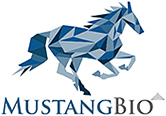CAR-T therapy MB-102 obtains positive data of hematoma clinical phase 1
CAR-T therapy MB-102 obtains positive data of hematoma clinical phase 1 December 13, 2017 Source: Sina Pharmaceutical On December 11th, US biotech company Mustang, based on patented chimeric antigen receptor T cells (CAR-T), focused on new cancer immunotherapy, said clinical researchers at City of Hope announced a company Positive results of the Phase 1 study of CAR-T immunotherapy MB-102: This therapy is used in the treatment of patients with parental plasmacytoid dendritic cell tumor (BPDCN) and acute myeloid leukemia (AML) (Accession No. NCT02159495) Both achieved complete remission of the disease and performed well in safety and tolerability. The clinical results have been orally presented by the City of Hope researchers at the 49th annual meeting of the American Society of Hematology. Dr. Manuel Litchman, CEO and President of Mustang Bio, said: "According to the City of Hope clinical researchers, the data obtained confirm that MB-102 is safe and tolerant as a CAR-T therapy. The treatment of the disease has also achieved complete remission. At the same time, the anti-leukemia activity of MB-102 in the treatment of AML and BPDCN has laid a good foundation for further clinical evaluation in patients who are suitable and unsuitable for transplantation. We are excited about the good results of CAR-T assets in three cancer types, including MB-102 for AML, BPDCN, and MB-101 for malignant glioma (December 2016 data release) Treatment in New England magazine." Dr. Elizabeth Lihua Budde, assistant professor of the Department of Hematology and Hematopoietic Stem Cell Transplantation at City of Hope and the lead investigator of this phase 1 clinical study, said: "The current treatment of AML usually has a low rate of remission, and there is a need for allogeneic hematopoietic stem cell transplantation. Larger limitations. While BPDCN is a rare and incurable blood tumor, there is currently no standard treatment. CD123 has over-expression in AML and BPDCN patients, which makes it a great solution. An attractive target for unmet need. We are encouraged by the mid-term data of MB-102, which has the potential to be a new treatment option for patients with AML and BPDCN, and we look forward to continuing ongoing clinical trials. Phase 1 trial." This clinical phase 1 trial is a single-center, first-time dose escalation study in patients evaluating the safety and therapeutic activity of increasing doses of MB-102 for AML (cohort 1) and BPDCN (cohort 2). . Patients received a single dose of MB-102 and were given a choice of a second infusion treatment (if they continued to meet safety and eligibility criteria and CD123 remained positive). As of today, a total of 14 patients were enrolled, and 7 (6 AML, 1 BPDCN) received CD123 CAR-T. In the AML cohort, two patients received a dose level of 1 (50M CAR+T), one of whom developed a morphological leukemia-free state on day 28. The other four patients received an infusion of dose level 2 (200M CAR+T), one of whom achieved complete remission on day 28 and the other achieved complete remission in incomplete blood count recovery on day 28, two patients A second allogeneic hematopoietic stem cell transplant was continued. In the BPDCN pair, a patient who received a 100M CAR+T infusion on day 28 achieved complete remission and maintained at least 60 days. More importantly, the patient had previously received treatment with five cycles of CD123-targeted recombinant fusion protein and developed relapse. The researchers believe that MB-102 is safer than the 200M CAR T infusion, and there is no graft-to-host response, no myeloablative, neurotoxic or dose-limiting toxicity. Adverse events included: cytokine release syndrome (1 case of grade 6, 1 case of grade 1), neurotoxicity (dizziness: 1 case of grade 1 and 5 cases of grade 2; headache: 1 case of grade 5, 2 cases of grade 2; lethargy: One grade, two grade 2), three cases of infection (2 cases of lung infection, 1 case of others). The most common grade ≥3 adverse events included lymphopenia (7 cases), thrombocytopenia (7 cases), and febrile neutropenia (6 cases). (Sina Pharmaceutical Compilation / David) Reference source: http://ir.mustangbio.com/Cache/1500105971.PDF?O=PDF&T=&Y=&D=&FID=1500105971&iid=4849551 Dried Squids,Dried Cuttlefish,Dehydrated Squid,Dry Calamari Zhoushan Fudan Tourism CO., LTD , https://www.fudanfood.com
